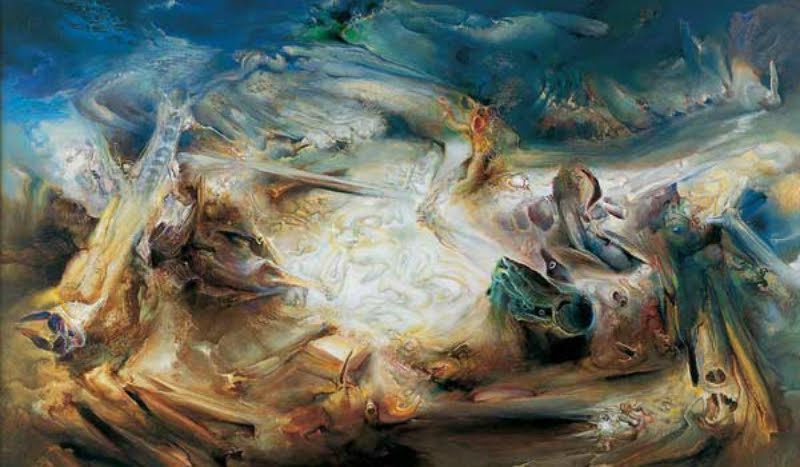Iron Man and a Comic Template
I recently watched the new Iron Man movie, efficiently titled 'Iron Man 2', and thought it was pretty enjoyable action romp. What intrigued me was that some of the criticism I had read before seeing it said it wasn't very good, as the plot was too complicated, the film was too 'wordy', etc. Most of these criticisms seemed disingenuous - the critics seemed to like Robert Downey Junior's performance, but deemed the story too 'complex' for an action movie audience. Not surprisingly, it has done very well at the box office, and the story really isn't that complex, it's just that it has a lot of characters, some of whom are minor and are clearly being set up as cross-overs with other productions within the Marvel universe. This is primarily where the criticism of complexity came from; in old world thinking, crossovers equal tacky franchising and are therefore 'bad'.
This of course got me thinking about transmedia. I enjoyed the introduction of these minor characters in Iron Man that may have screen time in their own films or others coming up, and when I got home afterwards I immediately looked up the characters and their back stories. I came across the very useful site SuperHeroDB, where you can find a biographical history of comic book characters, including which books they have been in and which other characters they have a history with. It's all interlinked, so I had fun clicking through different characters back stories as they related to each other. Comics have a long history of not locking characters into a single narrative. There is a well understood ethos of character and narrative overlap in the comic community, and it happily crosses into other mediums, like tv and film.
When Alex Leavitt asked 'Where Is Our Transmedia Mozart?', he questioned from what discipline the first great transmedia creator would emerge, and bucked against the automatic assumption is would be from film. While a diverse technical understanding is needed in film, and thus it would seem they are suited to create work across a variety of mediums, film is still very much about linear narrative. I think comic authors, with their flexible narratives that cross and overlap but can also be enjoyed individually, and their combination of both textual and visual narrative skill, are more poised to be our transmedia mozarts. The 'classic' transmedia example, The Matrix, was produced by a couple of comic book geeks, and of course comics were an essential part of the canon. Marvel is currently trying to develop it's universe of characters in much the same way as Disney, with an intelligent eye towards franchising and product overlap, and I can only hope that in the process they might produce some of the first truly great transmedia stories.

3 comments:
Great blog Warren! I thought Iron Man 2 was another example of how NOT to make media to be translated to other genres. The producers' greediness shows when scenes and storylines in film are too similar to game storylines, for example when they are in the Japanese garden place and they fight multiple bosses. It is a video game boss-introduction sequence when the drones arrive. A better example of this trend in movies is 'Coreline', where the storyline revolves entirely around the protagonist collecting magical objects and defeating bosses in different worlds. The bosses are all introduced in the video game style as well. It just screams "HEY! DID YOU KNOW? WE ALSO MADE A GAME. BUY IT!"
If the links between the genres are too obvious it looks tacky and greedy. The material within genres should not overlap too much. I like the idea of transmedia but I think the links and references between genres should be subtle. But that is probably too much to ask from big-budget childrens' transmedia! Will there be transmedia for adults as well?
Sounds like you don't like transmedia much at all. The cross over between media is what makes it interesting, because media are all merging, so what is the point of having strict rules for 'how a movie should be' from a narrative point of view as opposed to a game.
I don't really see why there is a problem with a movie being game like in it's structure (think of 'Run Lola, Run'. You seem to imply that games are a lesser medium to films, hence being 'game like' makes a movie bad, and the only reason for a movie to be like a game is for crass commercial reasons. What if going on to play the game adds extra richness and depth to the narrative? - I would want the movie to draw me into playing the game in that case.
The whole point of transmedia is that in the past media was produced, such as a film, and then other media was tacked on to it in a franchise primarily from a profit motive, yet transmedia tries to think about telling a story as a whole over many media, in a co-ordinated way. That means one medium bleeding into another.
But anyway, glad someone is actually reading the nonsense that I write! :)
What about Diary of a Wimpy kid? Didnt that start as a long running internet cartoon page or something? Then books and now film? I also think it's interesting how young chuldren now assume transmedia representation of all narratives they are introduced to... a story is a game, Tv show, film, toy, book, collectors card, poster at Maccas etc... they wouldnt even think to comment about it... they find it strange when a story doesnt have these interpretations.
Post a Comment